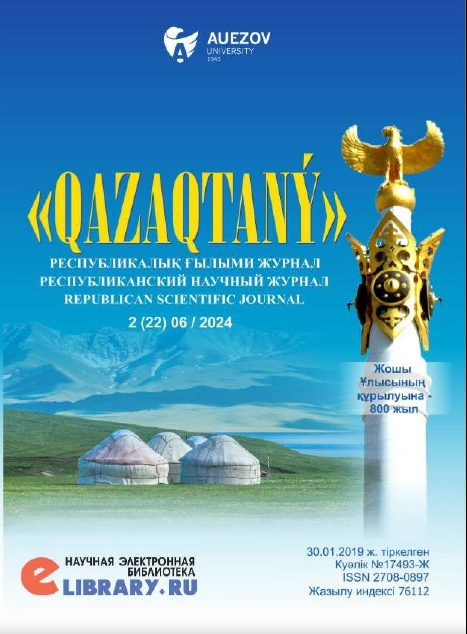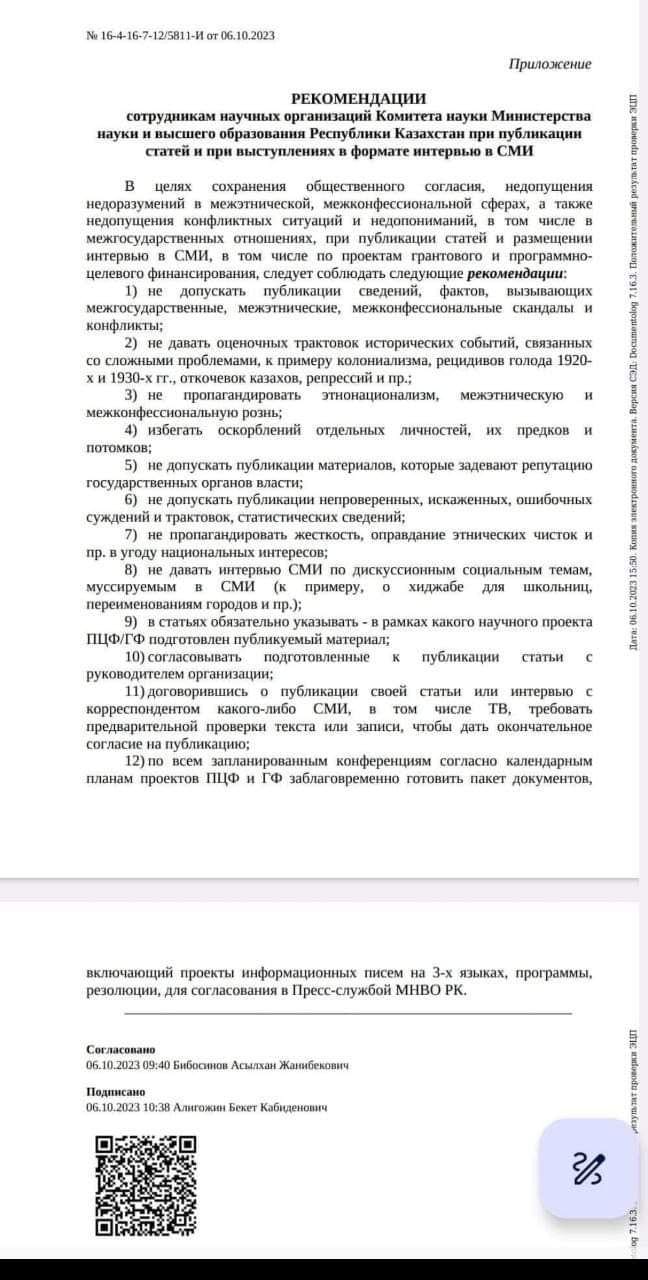THE ROLE OF THE GREAT ULUS OF THE GOLDEN HORDE IN THE FORMATION OF STATES, ALASH KHAN'S ROLE IN SHAPING THE NATIONAL SPIRIT IN THE HISTORY OF THE KAZAKHS
DOI:
https://doi.org/10.54251/2708-0897.2024.4.02qazKeywords:
Golden Horde, Ulug Ulus, Jochi Khan, Alash Khan, Turkic-Mongolian period, historiography, mythology, origin of khanates in Central Asia, civilization, nomadic cultureAbstract
The article examines the issues of the formation of the Jochi Ulus, the foundations of its origin and some versions of the Jochi person, data on Alash Khan, mythology and ethnographers' data on the
progenitor of the Kazakh Khanate, the analysis of these versions. In recent years, in historical science, a special place has been given to the Golden Horde period as the basis for the formation of the Kazakh statehood. The origins, the historical epoch, steppe historiology, historical figures, have become for Kazakh history a peculiarly important element in the composition of its own theory of the emergence and formation of the Kazakh statehood. In this regard, of course, the fact of the formation of interrelations between Turkic and Mongolian tribes in the XIII century, the creation of his empire by Shyngys Khan and the continuation of the main branch of the Ulug Ulus under the succession of his son Jochi comes to the fore. In general, the data are presented in chronological terms: the period of the founding of the Jochi Ulus, which became the basis for the following states - the Khanate of Abulkhair and then the Kazakh Khanate, the emergence and systematization of Russian principalities, Mamluks in Egypt, the beginning of the development of the Ottoman Empire, for almost 300 years until the 20s of the XVI century, the entry into the political arena of new states as - Crimean, Kazan, Siberian, Nogai Horde, which shows the cohesion of the political and moral highly cultural civilization of Ulug Ulus.



